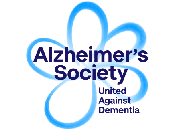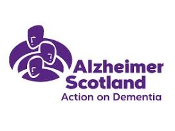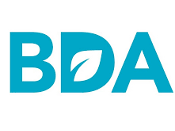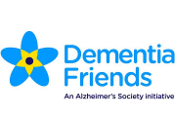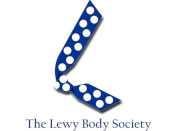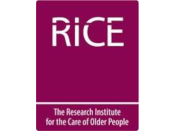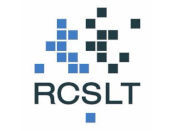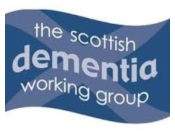
Living with dementia: dressing
Living with dementia: dressing
This factsheet is available for sponsorship, email marketing@dlf.org.uk
Sponsorship has no influence on our impartial content
Factsheet contents
- Introduction
- Underwear
- Shoes, socks and stockings
- Shirts, blouses and tops
- Jumpers and cardigans
- Skirts and dresses
- Trousers
- Nightdresses, nightshirts and pyjamas
- Accessories
- Swimwear
- Incontinence
- Loss of inhibition
- Assessing your needs
- Provision of equipment
- Funding sources for care
- For further advice from us
- Contributors
- Useful organisations and resources
- References and further reading
Introduction
As dementia progresses it can affect a person’s ability to dress and undress independently. Symptoms that can affect this ability include:
- memory loss
- difficulty with problem-solving and sequencing
- confusion.
Some people with dementia may experience perceptual problems such as dressing dyspraxia (or apraxia) (Caroloata, 2014). These types of perceptual problems are due to brain changes caused by dementia and can create confusion when getting dressed. The effect these symptoms can have on the person's independence can increase over time and as the condition progresses more assistance with dressing will be required.
A person with dementia should be able to make their own decisions and choices for as long as they are able. The following can help with maintaining their independence when dressing and undressing:
- Ensure there is ample privacy and that the room they are dressing/undressing in is warm enough, clutter free and has adequate lighting. A person with dementia may not want to get dressed or undressed unless they feel comfortable
- Select clothes that are simple to put on and take off, i.e. clothing with larger neck openings, front openings, Velcro closures, elasticated waistbands etc. Adapt existing clothes if possible, as the person with dementia is likely to feel more comfortable with familiar items
- Wherever possible, ask them what they would like to wear. If too many options are confusing, try offering a choice between two outfits or garments. (Alzheimer’s Society, 2019)
- Before dressing, lay clothes out on a plain background, arranging garments in the order that they are meant to be put on - start with underwear and end with a jumper or cardigan. Ensure clothing is not inside out and all fasteners/buttons etc are undone
- Give tactful and sensitive prompts if required. If instructions need to be given, keep them simple and use gestures if appropriate
- Assistive devices such as dressing sticks, sock aids, shoe horns and button hooks can be useful in the earlier stages of dementia but are unsuitable for those with cognitive impairments
- How the person is dressed will help them to understand what they should be doing – e.g. if they are in night clothes, they might think that it is time to go to bed, if they are dressed in leisure clothes, that it is time to relax etc. Appropriate dress may help avoid some confusion
- If the person appears uncomfortable with their clothing it may be due to physical discomfort, such as sensitivity to certain textures. The feel and texture of fabric or garments can induce strong affective and emotional reactions.
Memory problems can result in the person being unable to retain new information.
- To help avoid confusion, keep clothing stored in a familiar place
- Place labels on drawers and cupboards where clothing is kept. For example, in the bedroom labelling the “sock”, “t-shirt” drawer or wardrobe with “trousers”, “jacket” can be of benefit. It is often helpful to put a picture of the item next to the wording to help identify what is in that particular unit
- In some circumstances removing the cupboard/wardrobe doors can provide the person with a clear idea of what is inside. If a door is still required, then it could be replaced with either plastic or safety glass, thus protecting the contents whilst allowing the individual to see inside
- Limit the amount of clothes available to simplify decisions. Tidy out wardrobes and drawers, removing garments that are rarely worn, out-of-season, or that are difficult to put on or take off.
Underwear
 Maintaining the dignity of the person with dementia is very important as loss of dignity can lead to anxiety and depression. Adapted underwear can be helpful.
Maintaining the dignity of the person with dementia is very important as loss of dignity can lead to anxiety and depression. Adapted underwear can be helpful.
Lack of dexterity or limited movement can make pulling underwear up and down difficult.Underpants and knickers with side openings can make them easier to remove. This can also make it easier for carers to assist people in later dementia who may be experiencing continence problems. For men, boxer shorts tend to be easier than Y-fronts.
Vests can provide extra warmth and are available with side and back openings.
Bras can be difficult to put on and do up, especially those that fasten at the back as it can be difficult to twist the arms round to reach. An alternative is to hold the bra with the fastener at the front to do it up, and then twist the bra round into position and slip arms through the straps.
If it is difficult to reach back to fasten a bra in this way, a front fastening bra may be simpler to use - although having the fastening at the front may seem less familiar for some people with dementia.
Non-wired bras can be more comfortable. It's also worth considering a pull-on bra that goes over the head or a well-fitted vest or camisole.
Shoes, socks and stockings
 To give adequate support shoes should be comfortable, well-fitting and hold the foot firmly in place.
To give adequate support shoes should be comfortable, well-fitting and hold the foot firmly in place.
Feet tend to get bigger with age, especially in the width as tendons and ligaments that link the bones and muscles in the feet lose elasticity, which allows the toes to spread and the arch to flatten.

Slippers should not be worn for daily wear, especially if the feet are painful. This can cause a worsening of the condition, as slippers encourage shuffling instead of allowing the joints and muscles to work correctly.
Furthermore people with dementia are more at risk of falls (NHS Inform, 2018) and according to the University Hospitals of Leicester, 24,000 over-65s in the UK fall over at home every year because of poorly fitting footwear. The majority of these falls are caused by wearing poorly structured and ill-fitting slippers.
It is therefore advisable to wear good fitting shoes with low heels and firm slip-resistant soles (Menant Steele Menz Munro Lord, 2008). Plastic or ‘easy-clean’ uppers should be avoided as these will not allow the foot to breathe or stretch to accommodate the shape of the foot.
Socks are available in a range of fabrics and styles. Thermal and soft fabric add warmth and can be suitable as bed socks, seamless socks reduce risk of skin damage and increase comfort and rubberised grips on the soles can help to prevent slipping.
Stockings can be easier to use than tights, but support stockings can cause some circulation problems.
Shirts, blouses and tops

Increased loss of coordination, reduced dexterity and perceptual problems such as dyspraxia can affect the ability to manage dressing the top part of the body.
Shirts and blouses with fasteners such as magnetic buttons, Velcro or popper fastenings or side zips with easy pull tabs can help. Some garments have buttons fitted for aesthetic purposes with additional and simpler to use fasteners. Replacing existing buttons with magnetic buttons can reduce the need to purchase replacement clothing.
Wider arm and sleeve openings can make dressing easier, as can back opening shirts and blouses - although these cannot be fastened without assistance.
Tops and t-shirts with wider necks and arm openings can be easier to pull over the head. T-shirts with front opening fasteners or wraparound tops with Velcro fasteners are also available.
Jumpers and cardigans
 A person living with dementia may feel the cold more. Dressing with layers or making sure that a warm cardigan or jumper is available can help maintain a comfortable body temperature. Soft wool or fleece is less likely to be itchy or irritating. Fleece arm protectors can help protect the skin and also provide a warm layer.
A person living with dementia may feel the cold more. Dressing with layers or making sure that a warm cardigan or jumper is available can help maintain a comfortable body temperature. Soft wool or fleece is less likely to be itchy or irritating. Fleece arm protectors can help protect the skin and also provide a warm layer.
Jumpers with a wider neck and arm apertures and softer wool or fleece can be easier to put on.
Cardigans are available with adaptive fasteners such as magnetic buttons, Velcro or popper fastening and side zips with 'easy pull' tabs or in wraparound styles.
Skirts and dresses
A skirt or loose-fitting dress can be easier to put on and pull up. If the person with dementia has difficulty standing, then skirts or dresses that can be pulled on over the head can be helpful. Long side zips can also make dressing easier.
Skirts with elasticated waistbands or wraparound versions can easier to put on and can be useful for a person who spends a lot of time sitting. Tight skirts should be avoided as they can be more difficult to put on.
Looser fitting dresses with wider neck and sleeve openings, or those with adaptive fasteners such as magnetic buttons, Velcro or popper fastening, or in wrap around styles can be easier to put on and do up. Wrap around dresses or those that open to the waist can be easier to do up or step into. Back opening dresses can be an easier option for incontinence care.
Trousers
 Trousers can be difficult to put on, do up or take off. Reaching down when standing to pull them up may increase the risk of falls.
Trousers can be difficult to put on, do up or take off. Reaching down when standing to pull them up may increase the risk of falls.
Trousers with side openings can create a wider opening, which can make it easier to get the legs into when dressing. Men’s trousers with drop-down fronts are designed to provide access when using the toilet. Open back trousers are worth considering if the wearer needs to sit down to put them on or is a wheelchair user.
Elasticated waist or waistbands with magnetic buttons, Velcro or popper fastening and side zips with 'easy pull' tabs are available in both men’s and women’s styles.
Nightdresses, nightshirts and pyjamas

Nightshirts can be more comfortable than pyjamas and can be front or back opening. Nightshirts can also make it easier for carers to assist with any night-time continence problems in later dementia.(Alzheimer’s Society, 2018)
Pyjamas with an elasticated waist or side opening can create a wider opening and make it easier to get legs in. Pyjama tops can have adapted fastenings such as magnetic buttons, Velcro or popper fastenings.
Nightwear should be easy to remove if the person gets up regularly to use the toilet. Nightdresses that can be put on over the head or have adaptive fasteners such as magnetic buttons, Velcro or popper fastenings can be easier to put on and take off. Nightdresses can have front or back openings or opening at the shoulder.
A person with dementia may experience sleep disturbances, so comfort and warmth during the night is important. For extra warmth, bed socks, bootees and bed jackets can be useful.
Accessories
 Accessories can make an outfit look smart and there is no reason why the person with dementia should stop wearing them. Adapted accessories can help.
Accessories can make an outfit look smart and there is no reason why the person with dementia should stop wearing them. Adapted accessories can help.
Belts may have buckles that are difficult to do up. Anti-buckle belts look no different from ordinary belts but have simple Velcro fastenings.
Ties can be very difficult to do up. Clip-on ties are ready-formed, designed to clip onto the top of the shirt and don’t need to be wrapped around the neck.
Swimwear
 Swimming is excellent exercise for all ages and is beneficial for older people - it is a non-weight-bearing, low impact activity that puts minimal strain on joints and muscles. The sensation of moving through the water can be relaxing.
Swimming is excellent exercise for all ages and is beneficial for older people - it is a non-weight-bearing, low impact activity that puts minimal strain on joints and muscles. The sensation of moving through the water can be relaxing.
The right type of swimwear is essential, particularly if there are continence issues. Both men’s and women’s swimwear with built-in continence protection, or under-briefs that go under a standard swimwear can be useful.
Shorts with side zippers or full piece ladies suits with popper fasteners or front zip can make it easier to get into.
Incontinence
A person with dementia may be resistant to wearing protective underwear or incontinence pads. Putting pads in underwear before dressing may help. Providing easier access, adaptive clothing can help reduce the risk of ‘accidents’ or make it easier for carers to assist with changing pads.
Loss of inhibition
Jumpsuits and onesies
A person with dementia may lose their inhibitions and behave in ways that may be embarrassing to those close to them (Alzheimer's Society, 2018). This may include undressing at inappropriate times. This could be due to:
- damage to the frontal lobes in the brain
- needing the toilet
- boredom
- discomfort or itching
- anxiety and/or frustration.
NB - There are ethical considerations to take into account when considering these items of clothing.
The person involved could no longer be able to dress or undress themselves and may experience frustration as a result.
A person living with dementia may feel that their appearance is still important, or that they prefer certain types of clothing, but due to their condition a decision may be taken on their behalf to provide all-in-one jumpsuits or onesies.
Adaptive jumpsuits or onesies can increase the difficulty of undressing just enough so that the thought or urge to undress may pass before the person can start to undress. They can also prevent the removal of continence pads, which the person with dementia may find uncomfortable.
Jumpsuits can look like baby romper suits, with zips at the back that can only be accessed by a carer. Increasingly improved designs in this type of clothing means that there are now a range of styles that look like conventional clothing.
Assessing your needs
A range of conditions may cause forgetfulness, anxiety, low mood and confusion, however they may also be early signs of dementia. A visit to your GP would be recommended to rule out other causes and allow for a better understanding of the illness and how it may progress, as well as strategies on how to manage the symptoms.
The assessment for dementia is a process that takes time and goes through various stages and tests. These may include a physical examination, a blood test and interviewing both the person and their concerned friend/relative separately. This may lead to a referral to a local memory service or clinic. The GP, Community Psychiatric Nurse or a member of the memory clinic staff will be able to advise on symptoms, how the disease may develop and provide information on appropriate treatment. They will also be able to advise you on what support there is available locally. Prior to an appointment it can be useful to keep a journal or diary of any tasks that have become more difficult or concerns that you may have.
The GP can refer you for a Health and Social Care Needs Assessment, or you can contact your local authority Adult Social Care Department and make a self-referral, or have a friend or relative do it for you. By law anyone who appears to need care and support can request an assessment regardless of their income or savings.
The assessment will focus on your needs, how they impact on your well-being and on what you want to achieve and will aim to identify any difficulties you may have in caring for yourself. An Occupational Therapist will carry out the assessment and will be able to advise on strategies to help reduce any identified risks and recommend any equipment that may be helpful to maintain independence. If someone else is helping you they are also entitled to a carers assessment, which will help to identify what help and support they may need.
There are a number of charitable organisations listed below that can provide help and support for the person with dementia and their relatives and carers.
Provision of equipment
Many simple assistive technology devices mentioned in this fact sheet can be privately purchased. Others can be provided by local authorities or the NHS to meet an assessed need; you or a family member can request a home assessment from an occupational therapist
Permanent loan: Local Authority and health provision
If you require disability equipment, telecare or adaptations to your home then your local authority may be able to help. They can supply equipment or minor adaptations that cost under £1,000, free of charge. (Department of Health 2014, section 2.9). In Scotland, Local Authorities make their own arrangements for provision of minor adaptations and details can be accessed via your Council's website.
Some equipment such as pressure relieving cushions, mattresses, some mobility aids and wheelchairs are supplied by your local Health Authority. A referral to the District Nurse or Wheelchair Service for these items can be made via your GP or other health professionals including a Community Occupational Therapist or Physiotherapist.
Disabled Facilities Grant (DFG)
Should you need adaptations to your home that cost more than £1,000 that will allow you to continue to live there, you may be eligible for a Disabled Facilities Grant (DFG). An Occupational Therapist will complete an assessment and if the work is deemed necessary to meet your needs and is reasonable and practical, then they will arrange for a financial assessment to be undertaken.
If you meet the criteria for funding, the Occupational Therapist will make recommendations for the adaptations required.
Private purchase
If you do not wish to use local authority services, there are independent Occupational Therapists who can assess your needs and help to advise or assist you in buying any equipment or arrange adaptations to your home that you may require.
You can also purchase equipment privately, but it is recommended that you compare different options first. There may be an equipment demonstration centre near you where you can look at and try out equipment before purchasing, as well as receiving impartial advice.
Charity and Grant funding
Charitable trusts may sometimes provide equipment or give a grant for equipment purchase.
Turn2Us is a national charity that helps people who are in financial difficulty find grants for the provision of equipment, and Community Care gives a list of charitable organisations that give grants.
Charities tend to give awards in accordance with a predetermined criterion, so it is important that you carefully select the organisations that apply to your condition. There are also some workplace charities that will provide support for ex-employees. If you are or have served in the Armed Forces, or are a dependent or carer of a person who has served, The Royal British Legion may be able to provide you with support for specialist dementia care or grants for equipment and adaptations to your home, or small crisis grants to meet unexpected expenses.
Funding sources for care
If you need support with daily tasks that may include help from a carer, the delivery of meals or residential care then your local authority may help with the cost. How much support you are entitled to will depend on your income and savings and what your care needs are. A financial assessment of your means will be carried out to establish how much support you are entitled to.
You may be eligible for further financial support such as Attendance Allowance or Personal Independence Payment (PIP) and if you have a person who cares for you for 20 hours or more a week, they may be eligible for some financial support.
If you live alone you can apply to your local authority for a 25% reduction on your Council Tax bill, or if you live with someone else then they may be eligible for a 25% reduction on the Council Tax bill. As your condition progresses, they may be eligible for a further 25% reduction.
Private carers and residential care
If you are looking for a carer or are considering residential care, then you should ensure that the staff are trained in dementia care and are able to give the specialist help you need. A residential home should be designed to provide the best possible environment for you. There are a number of organisations that can help you with choosing a suitable home, including:
- Elderly Accommodation Council
- Housing Care.org
- DementiaUK
- Relatives and Residents Association
- Paying for Care
Care Home ratings/selector
Inspection reports and care home ratings can be found via:
- England – Care Quality Commission
- Scotland – Care Inspectorate
- Wales – Care Inspectorate Wales
- Northern Ireland – Regulation and Quality Improvement Authority
Charity and Grant funding
Charitable trusts may sometimes provide funding for care, nursing or residential respite, permanent care or a befriending service. Charities tend to give awards in accordance with a predetermined criterion, so it is important that you carefully select the organisations that apply to your condition. There are also some workplace charities that will provide support for ex-employees. If you are or have served in the Armed Forces, or are a dependent or carer of a person who has served, The Royal British Legion may be able to provide you with support for specialist dementia care or small crisis grants to meet unexpected expenses.
Further information relating to grants is available from:
- Community Care – a list of charities providing grants.
- Turn2us - Turn2us is a national charity that helps people in financial hardship gain access to welfare benefits, charitable grants and support services.
- Housing grants information from Disability Rights UK - led by people with diverse experiences of disability and health conditions, from different communities.
- Disability Grants - grants for disabled adults.
- My grants - accessibility grants for disabled and older people.
- Grants for individuals - this website is run by the Directory of Social Change and lets subscribers search for grants. It is intended for organisations searching for funding on behalf of individuals.
- The Money Advice Service - Charitable grants and major and minor adaptations.
VAT relief
If you have a diagnosed long-term condition, you may be able to claim VAT relief on purchases relating to the condition. The company supplying the equipment should be able to advise you, or there is general information on VAT relief on the GOV.UK website.
For further advice from us
For clear, practical advice and information on products and suppliers of daily living equipment, please have a look at our Living made easy website.
If you would like further advice related to choosing equipment for everyday living you could try relevant sections of AskSARA, our free online guided advice tool. AskSARA will ask you questions about yourself and your environment and then offer relevant advice, product suggestions and supplier details.
You can contact the DLF Helpline, which is open Monday to Friday from 10am to 4pm. Tel: 0300 999 0004 (calls charged at your standard land line rate even if you are phoning from a mobile).
Alternatively, you may wish to contact us via email: info@dlf.org.uk or by letter: DLF, 34 Chatfield Road, Wandsworth, London SW11 3SE.
To help us give you a concise and informative reply, please provide us with as much detail as possible, including information on the difficulties you are having and any solutions you have considered, such as equipment ideas.
Another source of advice is a disabled or independent living centre where you would have the opportunity to try out a range of equipment. There are several of these around the country where you can go for impartial advice. Your local authority will also be able to give you details of centres in your area.
Contributors
Gill Creighton
 Gill Creighton qualified as an Occupational Therapist is 2009 and worked for Local Authority Social Services as a community OT and Assistant Team Manager, and in Community Equipment Services as a Specialist Clinical Advisor. She has experience in working with children and adults with a wide range of disabilities and health conditions. Gill is now working as an independent OT providing a range of services including assessment and treatment, moving and handling training and expert witness.
Gill Creighton qualified as an Occupational Therapist is 2009 and worked for Local Authority Social Services as a community OT and Assistant Team Manager, and in Community Equipment Services as a Specialist Clinical Advisor. She has experience in working with children and adults with a wide range of disabilities and health conditions. Gill is now working as an independent OT providing a range of services including assessment and treatment, moving and handling training and expert witness.
Roisin Hodgson
 Roisin Hodgson qualified as an occupational therapist in 1993 and has worked extensively in hospitals and within the community. Now working as a private occupational therapist, Roisin has an interest in occupational therapy approaches to anxiety, panic and post traumatic stress disorder. Many of Roisin's clients have dementia; she works with them and their families advising on a range of solutions to help maintain independence, including home adaptations, daily living aids and telecare.
Roisin Hodgson qualified as an occupational therapist in 1993 and has worked extensively in hospitals and within the community. Now working as a private occupational therapist, Roisin has an interest in occupational therapy approaches to anxiety, panic and post traumatic stress disorder. Many of Roisin's clients have dementia; she works with them and their families advising on a range of solutions to help maintain independence, including home adaptations, daily living aids and telecare.
Nina Evans
 Nina Evans works alongside the design team at Designability. Working in partnership with users, carers and professionals, Nina carries out clinical trials with end-users, developing and promoting assistive technology to improve quality of life. Nina's qualifications include a Diploma of the College of Occupational Therapists and an MSc in Clinical Research.
Nina Evans works alongside the design team at Designability. Working in partnership with users, carers and professionals, Nina carries out clinical trials with end-users, developing and promoting assistive technology to improve quality of life. Nina's qualifications include a Diploma of the College of Occupational Therapists and an MSc in Clinical Research.
Useful organisations and resources
Age UK Advice is a free, confidential, national phone service for older people, their families, friends, carers and professionals. Their team of experts can provide advice and information on a number of topics including benefits, concerns about hospital stays, advice choosing care homes etc. The website can signpost you to local services including home helps, foot care, handy person services and dementia support.
The Age UK network includes Age Scotland, Age Cymru and Age NI.
Alzheimer's Society's website provides advice and support regarding all aspects of dementia – including the different types of dementia, symptoms, diagnosis and treatments available. They also run Dementia Connect, a comprehensive services directory for people affected by dementia - areas cover England, Wales and Northern Ireland.
.
Website: www.alzscot.org
24 hour Dementia Helpline: 0808 808 3000
Alzheimer Scotland provides a wide range of specialist services for people with dementia and their carers. They offer personalised support services, community activities, information and advice at every stage of the dementia journey.
Disabled Living
Burrows House, 10 Priestley Road
Wardley Industrial Estate, Worsley
Manchester, M28 2LY
Website: www.bbuk.org.uk
Telephone: 0161 607 8219
Email: bbuk@disabledliving.co.uk
Bowel and Bladder UK's National Confidential Helpline is managed by a team of Specialist Nurses and Continence Product information staff, who can be contacted for advice on specialist services, product information and general advice to help treat or manage bladder and bowel problems that may occur as a symptom of Dementia. Opening hours Monday to Friday 9am–4.30pm.
5th Floor, Charles House
148/9 Great Charles Street Queensway
Birmingham, B3 3HT
Website: www.bda.uk.com
Telephone: 0121 200 8080
The BDA is the only body in the UK representing the whole of the dietetic workforce. It is a trade union and professional body representing the professional, educational, public and workplace interests of its members.
Head Office
20 Great Dover Street
London SE1 4LX
Website: www.carersuk.org
Telephone: 020 7378 4999
Carers UK provide advice and support for all carers, whether they are new to looking after someone or have been a carer for a long time. Their telephone advice and support service is available if you wish to talk to someone about caring, with further information and advice available on the website. The website also provides contact details for Carers Wales, Scotland and Northern Ireland.
Carewatch Care Services Ltd
Libra House, Sunrise Parkway
Linford Wood
Milton Keynes MK14 6PH
Website: www.carewatch.co.uk
Telephone: 01908 557 950
Carewatch provide home care services throughout the UK, designed to enable people to remain as independent as possible within their own home. They offer multiple services including home visits, personal care, practical help, live-in care and dementia care at home and long term home care.
Dementia Friends provides information, support and learning for those who have a relative or know someone with dementia. Anyone of any age can be a dementia friend. Visit their website for more details.
Second Floor
356 Holloway Road
London N7 6PA
Website: www.dementiauk.org
Telephone: 020 7697 4160
Support line: 0800 888 6678
Dementia UK provide specialist dementia support for families through their Admiral Nurse service. The Admiral Nurses work with families giving one-to-one support, expert guidance and practical solutions.
Unity House
Westwood Park
Wigan, WN3 4HE
Website: www.lewybody.org
Telephone: 01942 914000
Support line: 0800 888 6678
Email: info@lewybody.org
The Lewy Body Society funds research into Dementia with Lewy Bodies (DLB). It's mission is to raise awareness of DLB among the general public and those in the medical profession and decision making positions, They also provide information resources for patients and carers.
Website: www.nhs.uk
NHS Choices provides comprehensive information on the help and support available for people living with dementia. Other NHS websites include: NHS Inform (Scotland), Health and Social Care online (N.I.) and NHS Direct Wales.
Website: www.nhs.uk
The Patient Advice and Liaison Service from the NHS offers confidential advice, support and information on health-related matters. They provide a point of contact for patients, their families and their carers when using NHS services. Your local PALS service can be located using the search facility on their website.
Website: www.nice.org.uk
NICE provides national guidance and advice to improve health and social care.
The RICE Centre
Royal United Hospital
Combe Park
Bath, BA1 3NG
Website: www.rice.org.uk
Telephone: 01225 476420
Email: info@rice.org.uk
RICE is a registered charity committed to undertaking and publishing effective research aimed at improving the diagnosis, assessment and treatment of people with Alzheimer’s disease and other forms of dementia. The charity also offers several healthcare services for people living with dementia including a memory clinic.
106-114 Borough High Street
Southwark
London SE1 1LB
Website: www.rcot.co.uk
Telephone: 020 7357 6480
Email: reception@rcot.co.uk
The Royal College of Occupational Therapists is the professional membership body for occupational therapy staff in the UK. Their website includes information on how to find an independent occupational therapist through their online directory.
2 White Hart Yard
London SE1 1NX
Website: www.rcslt.org
Telephone: 020 7378 1200
The RCSLT is the professional body for speech and language therapists in the UK providing leadership and setting professional standards.
81 Oxford Street
Glasgow, G5 9EP
Website: www.sdwg.org.uk
Telephone: 0141 410 1171
Email: sdwg@alzscot.org
Funded by Alzheimer Scotland and the Scottish Government SDWG is an independent group run by people with dementia, their families and carers, which campaigns on behalf of, and provides a voice for, people living with dementia in Scotland.
Watson House
54 Baker Street
London W1U 7EX
Website: www.scie.org.uk
Telephone: 020 7766 7400
Email: info@scie.org.uk
The Social Care Institute for Excellence (SCIE) improves the lives of people who use care services by sharing knowledge about what works. It is a leading improvement support agency and an independent charity working with adults’, families’ and children's care and support services across the UK. The website contains a library of resources and services on wide range of topics, including dementia.
SFE Administrator
Studio 209, Mill Studio Business Centre
Crane Mead
Ware
Hertfordshire, SG12 9PY
Website: www.sfe.legal
Telephone: 0844 567 6173
Email: sfe@standagency.com
Solicitors for the Elderly provide a service to help you locate a local solicitor, near you, to help you with wills, power of attorney, trusts, probate, paying for care and other legal needs. They are a national organisation across the UK and the Republic of Ireland
Wimslow House
Water Lane
Grove Way
Wimslow, SK9 5AG
Website: www.tsa-voice.org.uk
Telephone: 01625 520320
Email: admin@TSA-Voice.org.uk
The website has information on the telecare industry and the services it provides to individuals. The TSA aims to promote and support the telecare industry and highlight the benefits of telecare for service users, their friends, family and carers.
Released January 2019, to be reviewed by January 2022, Version 1
References and further reading Show references
Alzheimer’s Europe: Ethical dilemmas faced by carers and people with dementia. Available from www.alzheimer-europe.org/Ethics/Ethical-issues-in-practice/2014-Ethical-dilemmas-faced-by-carers-and-people-with-dementia
Alzheimer’s News Today: Regulating Body Temperature May Ease Alzheimer’s Disease Symptoms. Available from alzheimersnewstoday.com/2016/04/11/drop-in-body-temperature-linked-to-aging-aggravates-manifestations-of-alzheimers-disease
Alzheimer’s Society: How dementia progresses. Available from www.alzheimers.org.uk/about-dementia/symptoms-and-diagnosis/how-dementia-progresses
Alzheimer's UK: Toilet problems and continence in the later stages. Available from www.alzheimers.org.uk/about-dementia/symptoms-and-diagnosis/how-dementia-progresses/toilet-problems-later-stages
Alzheimer's Society: Dressing. Available from www.alzheimers.org.uk/get-support/daily-living/dressing
Alzheimer's Society: Reducing and dealing with accidents. Available from www.alzheimers.org.uk/get-support/daily-living/toilet-accidents-support-advice#content-start
Brain Injury Association of New York: What is sense of self? Available from www.projectlearnet.org/tutorials/sense_of_self_personal_identity.html
Family Caregiver Alliance: Dressing and grooming (for dementia). Available from https://www.caregiver.org/dressing-and-grooming-dementia
Family Caregiver Association: Incontinence (for dementia). Available from www.caregiver.org/incontinence-dementia
Helpguide.org: Alzheimer’s Disease - Recognizing the Symptoms and Coping with a Diagnosis. Available from www.helpguide.org/articles/alzheimers-dementia-aging/alzheimers-disease.htm
NHS Inform: Falls and dementia. www.nhsinform.scot/healthy-living/preventing-falls/falls-and-dementia
Science Daily: Going barefoot in home may contribute to elderly falls. Available from www.sciencedaily.com/releases/2010/06/100623085516.htm
Britta Friederike Schulte first published August 27, (2014) Research Article. Designing Garments for People with Dementia. 2015, Vol. 14(5) 691–695. The Author(s) 2014 Reprints and permissions: sagepub.co.uk/journalsPermissions.nav DOI: 10.1177/1471301214549138 dem.sagepub.com
Iltanen, Sonja & Wikberg, Minttu & Topo, Päivi. (2012). Design and dementia: A case of garments designed to prevent undressing. Dementia. 11. 49-59.
www.researchgate.net/publication/254085797_Design_and_dementia_A_case_of_garments_designed_to_prevent_undressing
Diane F Mahoney, Sharon LaRose, Edward L Mahoney (2015) Family caregivers’ perspectives on dementia-related dressing difficulties at home The preservation of self modelVol. 14(4) 494–512 The Author(s) 2013 Reprints and permissions: sagepub.co.uk/journalsPermissions.nav DOI: 10.1177/147130121350182
Mann WC, Kimble C, Justiss MD, Casson E, Tomita M, Wu SS. (2005) Problems with dressing in the frail elderly Am J Occup Ther. 2005 Jul-Aug;59(4):398-408
Menant JC Steele JR, Menz HB, Munro BJ, Lord SR (2008) Optimizing footwear for older people at risk of falls Journal of rehabilitation research and development 45(8):1167-81.
Sadanandavalli Retnaswami Chandra, Thomas Gregor Issac,Mirza Masoom Abbas Apraxias in Neurodegenerative Dementias 2015 Jan-Mar; 37(1): 42–47.
Treadway C, Fennell J, Prytherch D, Kenning G, Walters A (2016) Design for Wellbeing in Late Stage Dementia.
https://repository.cardiffmet.ac.uk/bitstream/handle/10369/8128/Wellbeing2016-book%20of%20proceedings%20-%20extract%201.pdf?sequence=2&isAllowed=y
Twigg, Julia Twigg, Buse, Christina E (First Published March 4, 2013) Dress, dementia and the embodiment of identity
12(3) 326–336 ! The Author(s) 2013 Reprints and permissions: sagepub.co.uk/journalsPermissions.nav DOI: 10.1177/1471301213476504
AskSARA
If you would like further advice regarding daily living equipment related to choosing equipment for everyday living you could try relevant sections of AskSARA. AskSARA is our free online guided advice tool. AskSARA will ask you questions about yourself and your environment and then offer relevant advice, product suggestions and supplier details.
| Attachment | Size |
|---|---|
| 117.51 KB | |
| 16.66 KB | |
| 38.76 KB | |
| 42.42 KB | |
| 28.49 KB | |
| 40.06 KB | |
| 23.67 KB | |
| 15.66 KB | |
| 14.04 KB | |
| 35.2 KB | |
| 27.92 KB |
All rights reserved. No reproduction or transmission of this publication may be made without written permission. Inclusion (including any sponsorship) does not indicate endorsement or that any item has been recommended or tested. All information is provided without legal responsibility.
Disabled Living Foundation, Tel: 020 7289 6111, Fax: 020 7266 2922, Helpline: 0300 999 0004 10.00am-4.00pm, Email: helpline@dlf.org.uk, Website: www.dlf.org.uk
Reg. Charity No: 290069, VAT Reg. No: 226 9253 54
 (Tell me about the standard)
(Tell me about the standard)

Your personal information is required in order to claim Gift Aid. This information is kept by DLF/Shaw Trust for financial audit purposes. For more information on our privacy policy visit: https://www.dlf.org.uk/content/privacy-policy


